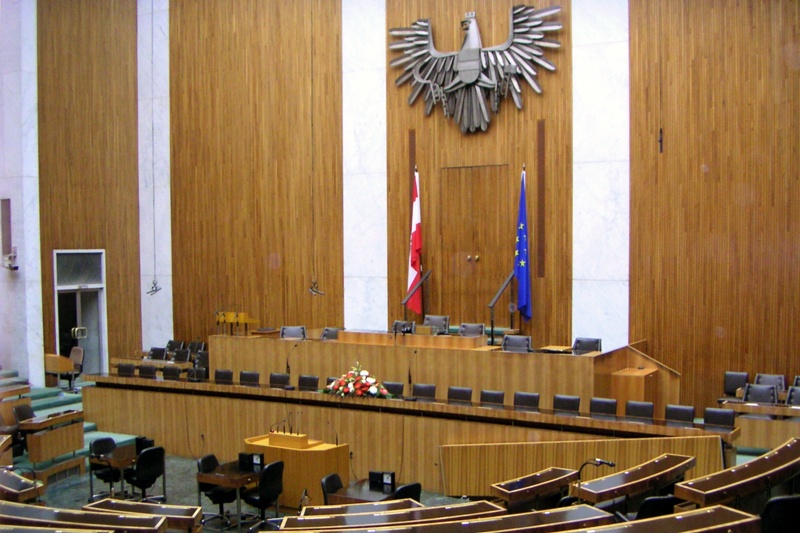Sponsored Content
Discussion in Austria's Parliament on Security Policy Concerning Ukraine and Israel
In the run-up to the European Council, Federal Chancellor Karl Nehammer and Foreign Minister Alexander Schallenberg met in Parliament to discuss current security policy challenges.
 MPs discuss Hamas terrorism, Ukraine, and the impact of conflicts at Europe's external borders on the EU. / Picture: © Wikimedia Commons/ Peter Binter/ CC BY-SA 2.0 (https://creativecommons.org/licenses/by-sa/2.0)
MPs discuss Hamas terrorism, Ukraine, and the impact of conflicts at Europe's external borders on the EU. / Picture: © Wikimedia Commons/ Peter Binter/ CC BY-SA 2.0 (https://creativecommons.org/licenses/by-sa/2.0)
The discussion focused mainly on the ongoing conflicts in Ukraine and the Gaza Strip, although the topics of EU enlargement and geopolitical developments in Europe were also discussed.
The proposed opening of accession talks with Ukraine was a major topic that provoked intense debate. The FPÖ in particular called for an Austrian veto on the expansion of the EU financial…
or Log In
Fast News Search





